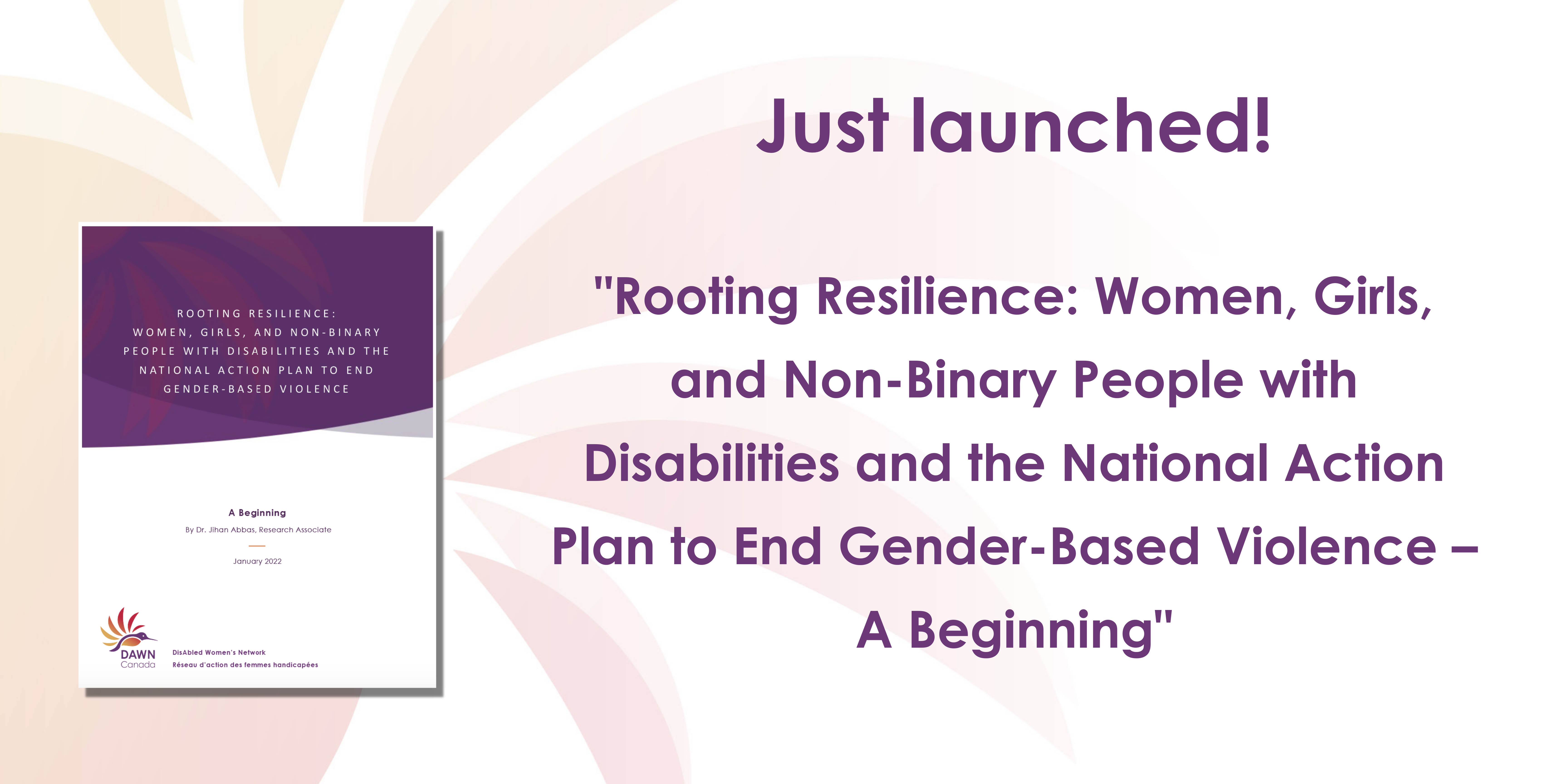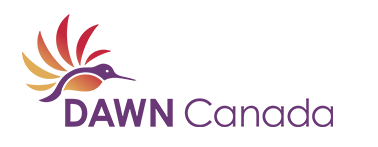Just Launched! Rooting Resilience: Women, Girls, and Non-binary people with Disabilities and the National Action Plan to End Gender-Based Violence: A beginning

The theme of International Women’s Day 2022 is to Break the Bias.
“Imagine a gender equal world. A world free of bias, stereotypes and discrimination. A world that's diverse, equitable, and inclusive. A world where difference is valued and celebrated. Together we can forge women's equality. Collectively we can all #BreakTheBias.
Celebrate women's achievement. Raise awareness against bias. Take action for equality.”
We all love a good # (hashtag) - at DAWN Canada, breaking down biases, stereotypes and discrimination is a full time job and diversity, equity and inclusion are our calling card.
Throughout this month we will be showcasing our work and our people, celebrating achievements and challenging the biases that result in women, girls and non-binary people with disabilities still facing the highest rates of discrimination, gender-based violence and poverty in Canada and globally.
Today, we are releasing “Rooting Resilience: Women, Girls, and Non-binary people with Disabilities and the National Action Plan to End Gender-Based Violence: A beginning”
The Government of Canada and our Provinces and Territories have made a commitment to women, girls and youth, and non-binary people through the adoption of the National Action Plan in October 2020 to end gender-based violence from coast to coast to coast.
DAWN Canada, and the many organizations who have been engaged to provide input, have been working on these issues from our beginnings. For DAWN, that is more than 35 years of research, education, and advocacy for policy change. Our document’s title calls this a beginning, not for us, but because the National Action Plan represents an opportunity to begin anew.
That women, girls and non-binary people with disabilities experience GBV at 2 to 3 times the rate of their non-disabled counter-parts, is now widely accepted and well documented in fact. The rates of disability for Indigenous and Black women are above 30%. Evidence that more than half of all women who are accessing GBV supports have a brain injury is also being confirmed in some of the leading research about GBV in Canada. That women are becoming disabled through violence was clear to us from our inception, but now, we have a body of evidence to bring to the National Action Plan. Our recommendations are evidence-based and call for a hard reset in how GBV is understood and addressed.
Systemic discrimination is now understood to be an important factor in who experiences higher rates of GBV and who is currently least supported. An intersectional human rights framework needs to be the roadmap that guides us from the beginning of Canada’s National Action Plan, not our aspiration.
It is time to center the many experts that have for so many years, worked tirelessly in the GBV space, often with no funding or resources to support the unsupported, the forgotten, invisibilized and criminalized victims of GBV.
Collectively we can! So, what can you do? Read the recommendations, share them, and then #BreakTheBias by committing to inclusive feminist practice and taking actions.
Watch for blogs, tweets and lots more from @DAWNRAFHCanada throughout March for International Women’s Day, about our work and our people, to inspire you to #BreakTheBias.
